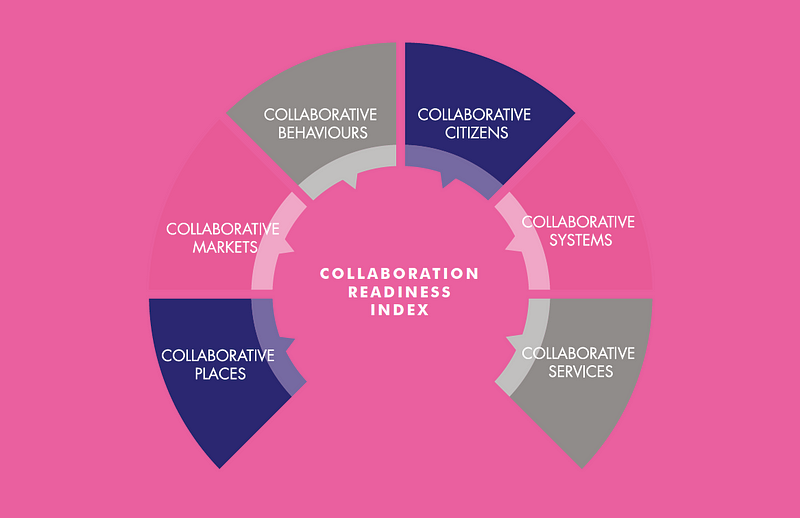‘Collaboration research flags gap between ambition and reality’
4 Jul 2018 11:55 AM
Take any issue among your priorities and think about whether it can be resolved by one organisation or sector working alone.
Written by Greg Parston & Anna Randle. This article was originally published in The LGC, on the 26th June 2018.
Improving outcomes for vulnerable families, supporting people to live well into old age, or achieving inclusive growth all require mature relationships between the public, voluntary and private sectors.
The case for collaboration in today’s operating context is clear. The question is: are we ready to do it? That is what the Collaborate Foundation set out to discover through the first ever national survey of ‘collaboration readiness’ in the UK.
We used Collaborate’s collaboration readiness index, which sets out six key building blocks of successful collaboration: citizens, systems, services, places, markets and behaviours. These were used to assess the extent to which people have the commitment, skills and support to deliver services collaboratively and to improve outcomes for citizens.
We also held a recent roundtable with senior leaders from local government, health, foundations, the third sector and the private sector to discuss the findings and identify how we can improve collaboration in the UK. One important insight is that the case for collaboration appears to be well-established among people involved in public services.

The challenges on the ground, combined with increasing political rhetoric about collaboration and integration at the national level, mean that working in partnership seems to be seen as a route to better outcomes. However, the research also highlighted that there is some distance to travel before working in collaboration is part of the day job.
The findings suggest that one reason for this gap is that people do not feel supported or incentivised to collaborate by their organisations or leaders, nor equipped with the tools they need to do it well. Collaboration is at times occurring in spite of the system, rather than because of it.
If we are to change this, leaders must encourage and invest in a culture in which staff have the tools and permission to work across organisational boundaries and solve problems in a way that drives collaborative solutions. Roundtable participants reflected on the length of time it can take to build a sustainable culture of collaboration beyond specific projects, and the need to define collaboration’s value, its impact and what it means for organisations.
The research also flagged that engagement of citizens appears to lag behind collaboration with other sectors, despite being seen by many respondents as crucial. The opportunity for more mature relationships and conversations with citizens about the future of places and services remains to be seized.
Roundtable participants argued for deliberate dialogue with citizens about complex issues such as the reconfiguration of local health services, and the value of enabling and supporting civic activism and participation when tackling local issues.
Participants noted that although there may be a gap when it comes to citizen engagement, there are plenty of places across the UK that are putting community involvement at the heart of their approach. This suggests that there is work to be done helping places learn from one another.
Of the six categories of the collaboration index, places and systems were identified by survey respondents as the most important. This echoes what we heard at the roundtable, where participants stressed the opportunity that building collaboration through the lens of place presents.
A shared vision for place can act as the glue that holds collaboration together.
It also presents opportunities to think systemically and build the infrastructure that enables more holistic responses to complex problems, such as more integrated commissioning and delivery. Although in some circumstances this can be difficult, there was agreement in the roundtable that building a shared vision for place is often a prerequisite to successful collaboration.
The results of the survey provide much food for thought in terms of the gap between the importance those of us involved in public services place on collaboration and our ability to do it in practice. Most of the roundtable participants could point to people, organisations and places across the country that are making change happen through collaboration across sectors and with citizens.
Collaboration is not yet thriving across the UK, but the green shoots are showing, and with them our understanding of what it takes to make it real.
Greg Parston, Chair of the Collaborate Foundation, and Anna Randle, Chief Executive of Collaborate CIC. The research methodology, survey findings and a summary of the roundtable discussion can be found in the State of Collaboration report
To find out more, contact Anna Randle.